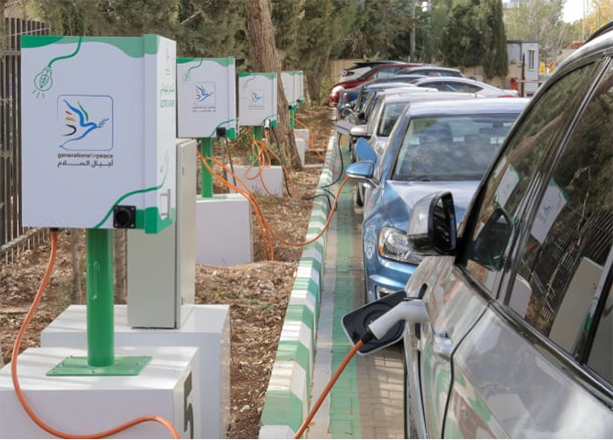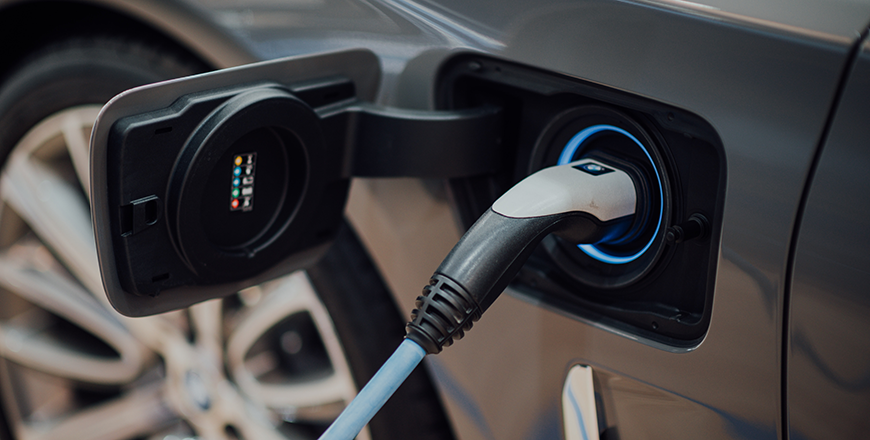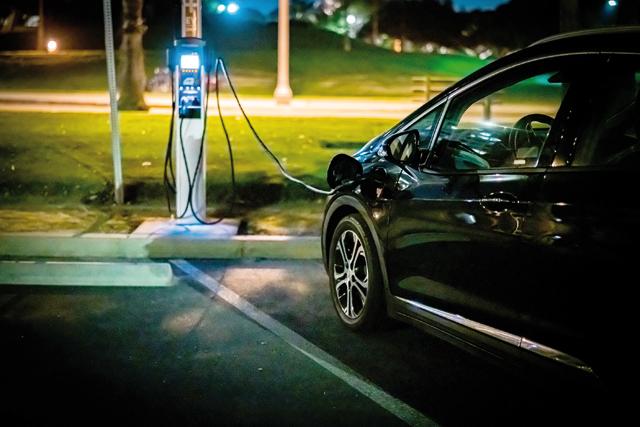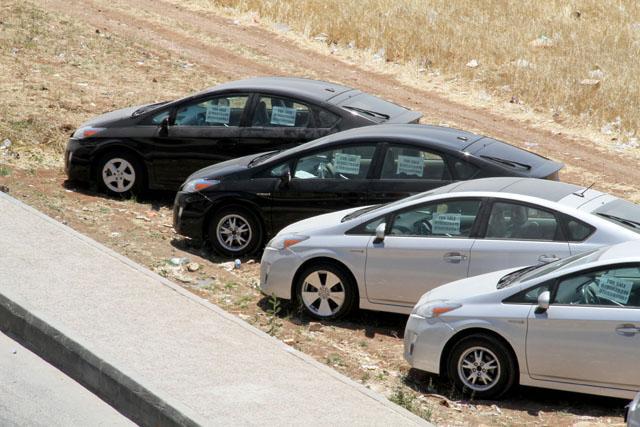You are here
EVs technology accelerates in Kingdom amid focus on safety, growing demand
By JT - Apr 28,2025 - Last updated at Apr 28,2025

President of the Jordan Free Zones Investors Commission says that 72 per cent of vehicles cleared through customs last year were electric, reflecting a ‘strong’ market shift towards EVs (Petra photo)
AMMAN — Jordan's transportation sector is witnessing a “rapid” shift towards electric vehicles (EVs), driven by technological advancements, increased environmental awareness and a national effort to reduce dependence on traditional fuels.
Alongside environmental benefits, the development of smart sensing technologies in autonomous driving systems is enhancing vehicle safety by reducing human error and offering "greater" precision, particularly in complex urban environments, the Jordan News Agency, Petra, reported.
Despite “rising” interest, experts in the local market identify charging infrastructure as a key challenge to broader EV adoption. While home charging is becoming more common, public charging stations remain "crucial" for longer journeys.
To address this, partnerships with the private sector are expanding the EV charging network, particularly in areas beyond city centres.
President of the Jordan Free Zones Investors Commission (JFZIC) Mohammad Bustanji on Monday told Petra that the “simplicity and environmental effectiveness” of EV technology have been "major" incentives for their import.
He noted that 72 per cent of vehicles cleared through customs last year were electric, compared with 17 per cent hybrid vehicles and 11 per cent gasoline-powered, reflecting a "strong" market shift towards EVs.
Bustanji stressed that EVs have gained public trust as "economical" and "reliable" options that meet diverse needs.
He added that spare parts are available at "affordable" prices, supporting broader ownership by enabling citizens to replace older vehicles with modern electric models.
He pointed out that the government has established a comprehensive system for inspecting used vehicles, requiring checks at certified centres covering 115 inspection points.
Bustanji called for environmental standards aligned with local market needs and reiterated that public safety must remain the "primary" criterion for vehicle import and sector support.
He also confirmed that spare parts for modern electric vehicles are readily available, given the simplicity of EV components.
Bustanji noted that all importing companies guarantee the safety and maintenance of their vehicles.
Jordan currently hosts approximately 150,000 electric vehicles and about 200 charging stations nationwide.
He highlighted that the adoption of electric vehicles significantly contributes to reducing harmful emissions, positioning Jordan among the leading countries in the region in promoting environmental sustainability through EV ownership.
Despite some challenges persist, EV owner Abdul Karim Ghoul noted that high spare part prices, stemming from limited availability and market monopolies, remain a concern. He pointed out "significant" price differences compared with international markets.
Likewise, EV owner Ali Ouratani said that the high cost of spare parts does not align with the financial capacity of "many" citizens, discouraging some from replacing older vehicles with electric models.
President of the Irbid Chamber of Commerce Mohammad Shouha said that national specifications ensure the availability of spare parts and "proper" vehicle maintenance.
He said chambers of commerce are addressing complaints regarding pricing and availability to meet citizens' needs and financial capabilities.
Shouha added that "rigid" standards prevent the entry of vehicles that do not comply with Jordanian requirements for spare parts availability and serviceability.
He assured that technical inspections and maintenance of electric vehicles are "efficiently" managed at centres supervised by the Ministry of Industry and Trade.
Basem Daradkeh, a dealer specialising in electric and hybrid vehicles, said that efforts are underway to ensure the "continuous" availability of "essential" technologies, spare parts, and maintenance services.
He said that growing demand for electric vehicles is supported by their low maintenance costs, enhanced safety, and the expansion of the charging station network across Jordan, Petra added.
Related Articles
AMMAN — The clearance rate of electric cars increased by 96 per cent during the first half of this year at the Zarqa Free Zone, according to
AMMAN — Demand for electric cars has skyrocketed with a 40 per cent increase since the beginning of 2022. “The increase in demand is du
AMMAN — The prices of hybrid cars will see an increase as of January 2022, due to the government decision to cancel tax exemptions, accordin














